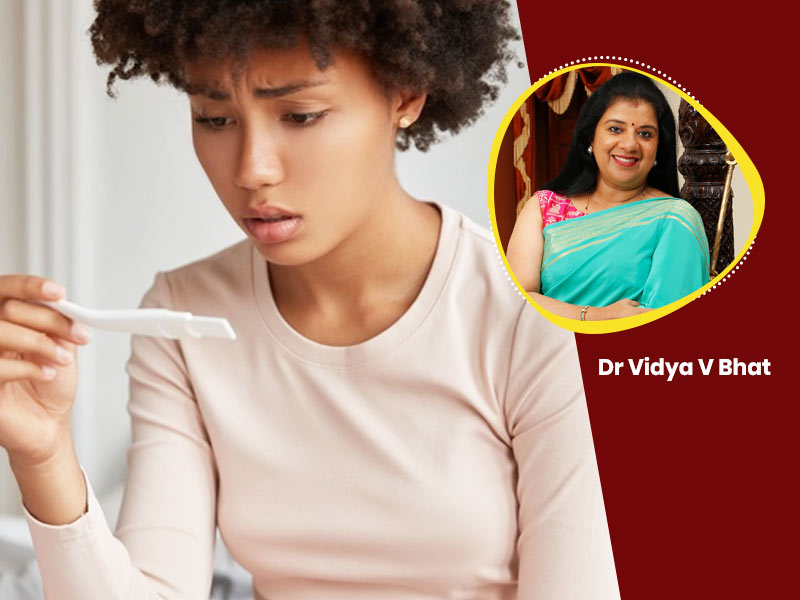
Is there a rise in the levels of infertility among Indian women in recent times? This appears to be the case if the rise in the use of assisted reproductive technologies (ART) by couples in India is taken into account. According to Dr Vidya V Bhat, who is the Medical Director of RadhaKrishna Multispeciality Hospital in Bengaluru, the use of ART is showing an increase of 5-10% every year. Also, as per the World Health Organisation (WHO), the overall prevalence of primary infertility in the country stands at around 3.9% to 16.8%. The world health body defines primary pregnancy as when a person hasn’t achieved any pregnancy. So what is the reason behind this?
Table of Content:-
As per Dr Bhat, the recent phenomenon of reduced fertility among Indian women is caused by delayed marriages, postponement of childbearing as well as the use of modern contraceptives. Both the “average age of Indian urban women at their first pregnancy and the number of pregnancies in women over 35 years of age have been steadily increasing,” she says. As the woman ages, her chances of getting pregnant reduces, she added.
Why Do The Chances Of Pregnancy Reduce With Age?

(Photo Credit: Freepik)
As you already know, a woman’s chances of getting pregnant reduce with age. This can be due to:
- Decreased frequency of sexual intercourse
- The quality of the uterus lowers
- The ageing egg cells result in poor-quality embryos. Post the age of 35, there is a reduction in the intrinsic fertility potential of egg cells.
Other Effects On The Woman
Other than the direct impact on the chance of pregnancy, delayed childbearing can also impact the health of both the woman and the child. According to Dr Bhat:
- Delayed childbearing could be the reason behind the increasing cases of gestational diabetes, which is a type of diabetes that develops during pregnancy in a woman, who didn’t have this ailment previously. This can further lead to type-2 diabetes.
- Women who conceive late are also at a greater chance of suffering from chronic hypertension since the start of their pregnancy.
- They might also face some labor-related issues such as non-progression of labour and non-descent of the fetal head.
- Above the age of 35, the risk of spontaneous abortion also increases.
- There are also chances of chromosomal anomalies in the baby.
Obesity is another issue. Women who gain excessive weight during pregnancy may suffer from metabolic syndrome and can even face the recurrent loss of pregnancy.
Also read: Thyroid During Pregnancy: Can It Affect The Baby? Know Treatment From Expert
So, What Is The Correct Age To Get Pregnant?

(Photo Credit: Freepik)
Fertility starts declining post the age of 32 and this decline gets rapid around the age of 37. Thus, it is best to get pregnant between the ages of 25 and 33, says Dr Bhat. Also, more and more women are opting for egg freezing and surrogacy for having a child once they get settled. However, success isn’t guaranteed, according to the doctor. In fact, as per an estimate by the Society of Assisted Reproductive Technology, the success of IVF for women below the age of 35 is 55.6%. This correspondingly reduces to 40.8% for women between the ages of 35-37, 26.8% for women in the age group of 38-40, 12.6% for 41-42-year-olds, and 3.9% for women above the age of that. Similarly, the pregnancy rate from embryo transfer in the case of surrogacy stands at 53.6%.
Other Reasons For Infertility In Women
Delayed marriage and pregnancy are among the many causes of infertility in women. Here are some other reasons for infertility among women as enumerated by the UK’s National Health Service (NHS):
- PCOS: In this case, the ovaries may not either release the egg at a regular interval or release an unhealthy egg.
- Thyroid Problem: Both hyperthyroidism and hypothyroidism can affect ovulation.
- Premature Ovarian Failure: In this case, the ovaries stop working before menopause.
- Scarring from certain surgeries can also cause infertility.
- Fibroids: Sometimes, fibroids, which are non-cancerous growths, develop in or around the womb, which affects fertility.
- Endometriosis: This is another cause of infertility. In women suffering from endometriosis, certain pieces of the lining of the womb start growing in other places.
- An infection in a woman’s upper female genital tract can also lead to infertility.
What Are The Options?
In case of infertility, there are other options too for childbearing, which include:
- Intrauterine Insemination (IUI): More commonly known as artificial insemination, in the case of intrauterine insemination (IUI), sperm is inserted in the womb through a thin plastic tube, which passes through the cervix.
- In Vitro Fertilisation (IVF): In this, the egg is fertilised with the sperm outside the womb. Once fertilised, the embryo is inserted back into the womb.
- Sperm Or Egg Donation: In case of infertility among one of the partners, sperm or egg donation is another option. The egg is fertilised generally via IVF, as per the UK NHS.
Hence, these are some of the options to get pregnant in case of infertility. As you already saw, delayed marriage and childbirth can be among the causes of infertility among women. Hence, getting pregnant between the ages of 25 and 33 is recommended. Not only does it reduce the chances of infertility, but it also protects both the mother and the child from a host of health conditions
(With inputs from Dr Vidya V Bhat, who is the Medical Director of RadhaKrishna Multispeciality Hospital in Bengaluru)
Photo Credit: Freepik
Also watch this video
How we keep this article up to date:
We work with experts and keep a close eye on the latest in health and wellness. Whenever there is a new research or helpful information, we update our articles with accurate and useful advice.
Current Version